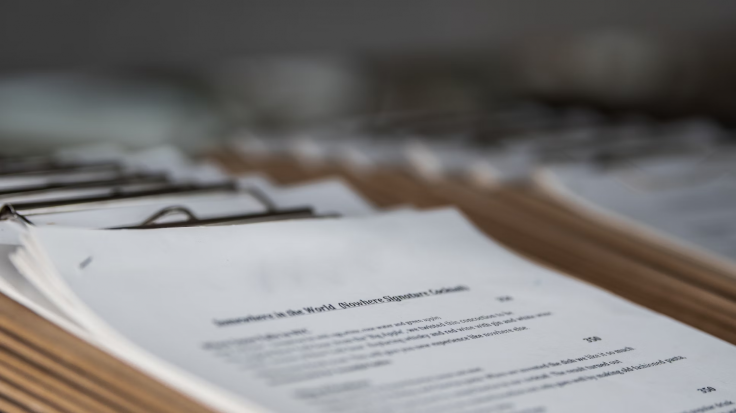The House Education and Workforce Committee is intensifying its scrutiny of Harvard University, demanding a comprehensive set of documents related to antisemitic incidents on campus, as well as information on the institution's discipline processes, policies, budget, and funds from foreign sources.
The move comes amidst a broader investigation into how universities, including Harvard, have addressed reports of campus antisemitism. This article explores the details of the document request and its implications for Harvard.

Document Requests and Concerns
In a nine-page letter addressed to Harvard University, Representative Virginia Foxx, the chair of the House Education and Workforce Committee, outlined 24 specific requests for documents and communications among Harvard's leadership. The committee is seeking information on antisemitic incidents, the university's response to them, and its overall approach to diversity, equity, and inclusion. The deadline for submitting the requested documents is Jan. 23, reflecting the committee's urgency in obtaining this information.
Foxx expressed significant concerns about what she perceives as Harvard's inadequate response to antisemitism on its campus. The document request includes a focus on understanding the extent of antisemitic incidents, the university's internal communication regarding such events, and the measures taken to address them. The committee's thorough investigation signifies a commitment to holding academic institutions accountable for fostering safe and inclusive environments.
READ ALSO : MIT President Sally Kornbluth Unveils Initiatives To Address Campus Challenges Amid Israel-Hamas Conflict
Harvard's Unique Position in Ongoing Investigations
While several universities, including the University of Pennsylvania and the Massachusetts Institute of Technology, are currently under investigation for their handling of campus antisemitism, Harvard is the first to receive a detailed document request from the House Education and Workforce Committee. The intensified scrutiny indicates a shift in focus from individual leaders to broader institutional practices.
Harvard's former president, Claudine Gay, recently resigned amid allegations of plagiarism and mounting criticism of her testimony at a House hearing on campus antisemitism. The committee's investigation into Harvard's response to the plagiarism allegations adds another layer of complexity to the ongoing inquiries. Representative Foxx emphasized that the committee's concerns extend beyond individual leaders, highlighting systemic issues within the university.
Scope of Document Requests
The document request spans various aspects of Harvard's operations, reflecting the committee's determination to comprehensively assess the institution's approach to antisemitism and related matters. In addition to requests for documents and emails specific to antisemitic incidents, the committee is seeking information about Harvard's diversity, equity, and inclusion offices. They are also interested in data related to Jewish student enrollment at the university, dating back to 2013.
The committee's thorough examination of recruitment, admission, enrollment, and retention practices concerning Jewish students underscores a commitment to understanding the university's efforts to foster a diverse and inclusive student body. This broader perspective aligns with ongoing national conversations about the importance of diversity and equity in educational institutions.
The House Education and Workforce Committee's demands for documents from Harvard University signal a deepening investigation into the institution's handling of antisemitic incidents on campus. As the first university to receive such a detailed request, Harvard finds itself at the forefront of heightened scrutiny into institutional practices beyond individual leadership. The investigation's scope, including inquiries into diversity, equity, and inclusion efforts, reflects a broader commitment to ensuring safe and inclusive environments within higher education institutions. Harvard's response to these demands will likely set a precedent for how universities navigate similar investigations in the future.
© 2025 University Herald, All rights reserved. Do not reproduce without permission.








